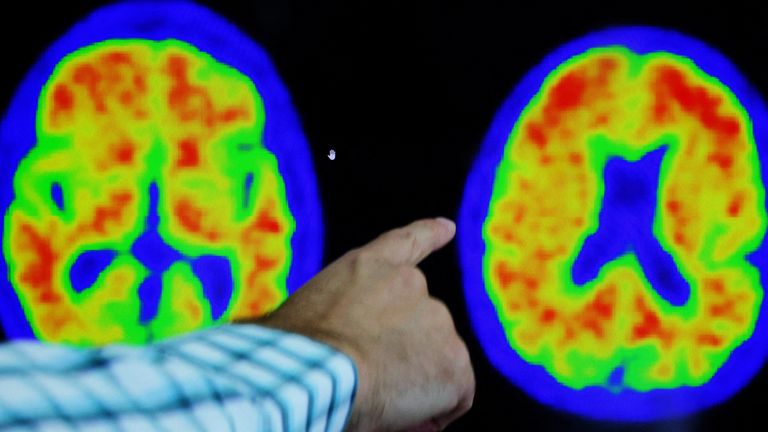Scientists have come up with a list of 11 risk factors, from lifestyle choices to illness history, for a person getting dementia.
They are age, education, history of diabetes, history of depression, history of stroke, parental history of dementia, deprivation, high blood pressure, high cholesterol, living alone and gender.
The list was whittled down from 28 known factors linked to dementia risk, and was then used to develop a tool academics say can “strongly predict” whether someone will develop the condition in the next 14 years.
To make the list, an expert team from the University of Oxford examined data from more than 223,000 people aged between 50 and 73, which was recorded during two long-term UK studies.
The risk factors identified were also examined alongside whether people carried the APOE gene, which is known to increase the chance of developing dementia.
Taking this into account increased the predictive capability of the risk tool even more, but one based purely on the 11 risk factor list also performed well.
Please use Chrome browser for a more accessible video player

1:11
How air pollution could impact dementia sufferers
The researchers believe the tool could be used as an initial screening tool, prioritising potential dementia patients for further tests like brain scans.
They could also highlight effective preventative measures people can take while it’s still possible, such as reducing alcohol intake, stopping smoking, and losing weight.
Previous studies suggest up to 40% of dementia cases could be prevented through such action.
But lead author Dr Raihaan Patel said the tool would need more testing before being put into general use.
“It’s well known dementia risk, onset, and prevalence vary by race, ethnicity and socioeconomic status,” he said.
“Therefore, we need to evaluate it across more diverse groups of people both within and beyond the UK.”
Read more:
New drug raises hopes of dementia cure
Robin Williams and the dementia he didn’t know he had
Bruce Willis’s diagnosis drives visits to Alzheimer’s website
Please use Chrome browser for a more accessible video player

2:39
Alzheimer’s drug a ‘turning point’
The risk score also doesn’t represent a “definitive outcome”, the researchers stressed.
Associate professor Sana Suri said the importance of each risk factor varies and some can be treated.
“While over age and APOE confer the greatest risk, modifiable factors such as diabetes, depression, and high blood pressure also have a key role,” she added.
Prof Suri said someone with all three conditions will be roughly three times more likely to develop dementia than someone of the same age who doesn’t have any.
The findings have been published in the BMJ Mental Health journal.







